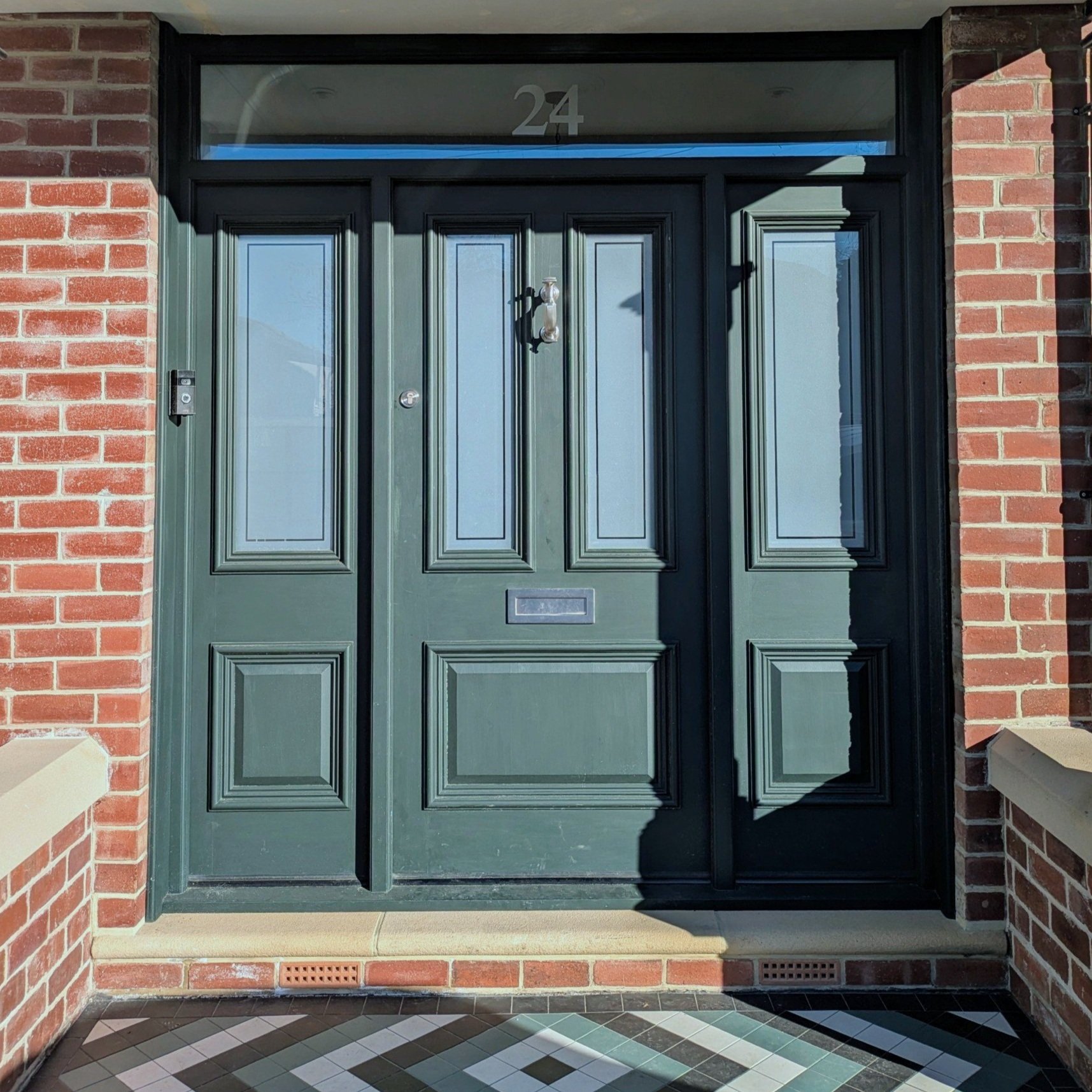Mortgages explained: Part 2 (How to get a mortgage)
Hello lovely readers!
Last week I shared the first half to this blog post, where I broke down some of the tricky mortgage jargon. Now it’s time to dive into the fun (yes- fun!) part- how you can make yourself super-appealing to lenders and snag the best mortgage deal possible. 🎉
Getting a mortgage isn’t something you want to leave to the last minute. It’s like planning a big trip—you need to prepare, plan, and get everything in order before you can head to your dream destination (aka your new home!). So- grab a cuppa, get comfy, and let’s dive in! 💦
Get a good credit score ✨
Here’s the thing: you might think that never having any debt is a good thing, right? I mean, you’re great at budgeting, never splurge on things you don’t need, and stay out of the overdraft zone. 👏 But here’s the plot twist: when you’re applying for a mortgage, lenders actually like to see a bit of a credit history.
Why? Well, they need to know that you can handle borrowed money responsibly. If you've never borrowed anything, how can they be sure you’ll pay it back on time? So… what can you do to boost your credit score and impress those lenders? Here are a few easy tricks:
Get a Credit Card: What? Really? Yes! But don’t get too excited—I’m not suggesting a massive shopping spree. 🛍️ Instead, use the card for things you’d normally buy, like your groceries or a cup of coffee, then pay it off in full each month. Doing this will show lenders you’re good at managing debt responsibly.
Pay Your Bills On Time: Set up direct debits for things like your phone, energy bills, and any subscriptions. This will show lenders you’re super-reliable when it comes to paying what you owe. No one wants to see missed payments!
Keep Your Credit Utilisation Low: Don’t max out your credit card! For example, if you have a £5k limit, try to keep your balance at around £1.5k or less. This shows lenders that you’re not over-relying on credit, which looks good on your credit report.
Don’t Apply for Loads of Credit: Even if you don’t end up taking the loans out, applying for lots of different cards or loans in a short time can look like you’re desperate for credit and therefore perhaps not great at budgeting (and that’s never a good vibe). Be strategic with your credit applications, even more so in the 6 months before applying for a mortgage. Avoid applying for new credit in this period if you can.
Building a great credit score takes months if not years, so thinking ahead is key! With Experian, a score of 881/999 is considered good, and 961/999 is considered excellent. You can also check your credit score for free on other websites such as Equifax and ClearScore.
What else do lenders care about?
It’s not just about your credit score! Lenders will also look at a few other factors to see if you're ready to take on a mortgage:
Income and Employment History 🏢
Lenders want to see that you have steady income. If you’ve been employed at your place of work for less than 6 months, some lenders might raise an eyebrow. If you’re self-employed, you’ll need at least 2 years of income history to show your business is stable. I wasn’t lying when I said applying for a mortgage requires some forward-thinking!
Debt-to-Income Ratio 💰
This is the percentage of your income that goes toward paying off debt. Basically, the lower the better! You don’t want to be drowning in debt when applying for a mortgage. Keep an eye on your existing loans, and avoid taking on any new debts right before applying.
Other Assets 💎
It’s great to have savings or investments stashed away—especially an emergency fund (think 3-6 months of living expenses). This shows lenders you have a financial cushion in case something goes wrong.
Guarantors 👨👩👧👦
Sometimes, lenders might want a little extra reassurance, and that’s where a guarantor comes in. A guarantor is someone who agrees to pay the mortgage payments for you if you can’t. This is a huge commitment, which is why a guarantor is usually a parent or a very close family member. This sounds great, but you need to make sure you and your guarantor are on the same page and this isn’t something to be taken advantage of. If you can’t make the payments it could affect the guarantor’s credit score. Worse still, if they can’t make the payments they could face legal action- the lender could even seize their assets in order to repay the loan. The bottom line is, if you don’t think you will be able to make these payments yourself, you shouldn’t apply for the mortgage.
3. Getting the Best Mortgage Deal: Time to Shine! ⭐
Now that you’re looking great to lenders, let’s talk about how to get the best deal possible.
Loan-to-Value (LTV) 💸
This is the percentage of the property’s value that you’re borrowing. For example, if you’re buying a house for £100k and borrowing £70k, your LTV is 70%. The lower the LTV, the better your mortgage rate will likely be! So, if you can save up a bigger deposit, you’ll be paying less interest in the long run.
Compare Deals Like a Pro 🔍
There are lots of mortgage deals out there, but how do you know which one is the best for you? Use comparison websites like Money Saving Expert or Compare the Market to check out the options. One thing you’ll want to focus on is the APRC (Annual Percentage Rate of Charge). This percentage shows you the total cost of the mortgage per year (interest + fees) and is super handy when comparing deals. Just remember, it’s an estimate—it assumes the rate stays the same for the whole term, which we all know (unfortunately) is not going to happen. It’s very likely to go up after your initial deal period (if you haven’t already read the first part to this blog, I explain this there.)
If you have a look online and still find the process complicated and overwhelming, you can get advice from a mortgage broker or a financial adviser. They will most likely charge a fee for their services, but they can help you navigate all the different options and find you the best deal for your circumstances. They take all of the hard work out of it for you, so it’s very much money well-spent! 👌
4. Saving for a Deposit: Let's Do This! 💪
Help to Buy ISA* 🏠
Okay, so this one is a bit of a blast from the past—it was phased out in November 2019, but if you already have one, you're still in luck! Up until Dec 2030 the government will give you a 25% bonus on your savings, up to a maximum £3k bonus (if you save £12k, the government will top it up to £15k). You can use this bonus towards your first home. And, if you’re buying with a partner- you can both get the bonus- hello £6k! 🤩
Lifetime ISA (LISA) 💰
The Lifetime ISA is the shiny new alternative, introduced in 2017. It’s got a 25% government bonus too, but you can save more money with it (up to £4k a year, with a £1k bonus added on top). You can use the funds for either buying your first home or saving for retirement. You have to be between the ages of 18 and 39 to open a LISA, and you can only continue saving until you are 50. To use the money for your first home, the property price must be less than £450k. A little heads-up: if you’re saving for retirement, you can’t touch the money until you’re 60!
*What’s an ISA??? It stand for Individual Savings Account. It’s a tax-efficient way of saving, as your money can grow in there tax-free!
And There You Have It!
Now you’re armed with all the tools and tips to make yourself the dream borrower for lenders. Just remember—mortgage applications require a bit of time and patience, but with careful planning and smart decisions, you’ll be on your way to landing that perfect home!
If you need any more help or have questions, don’t hesitate to drop me a message on Instagram! I’m always happy to help. 😊
And if the whole mortgage thing is still feeling a bit overwhelming, financial advisers or mortgage brokers are your new best friends (me, pick me! ✋) I’ll find the best deals for you, no stress!
Good luck, and happy house-hunting! 💖
Love, Katie x


